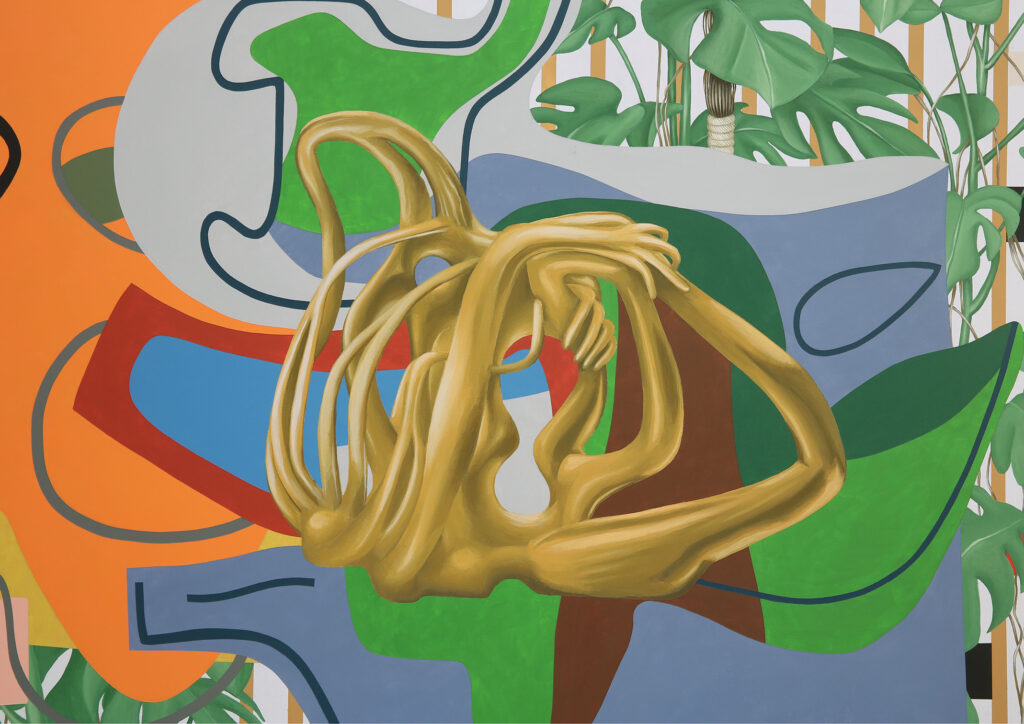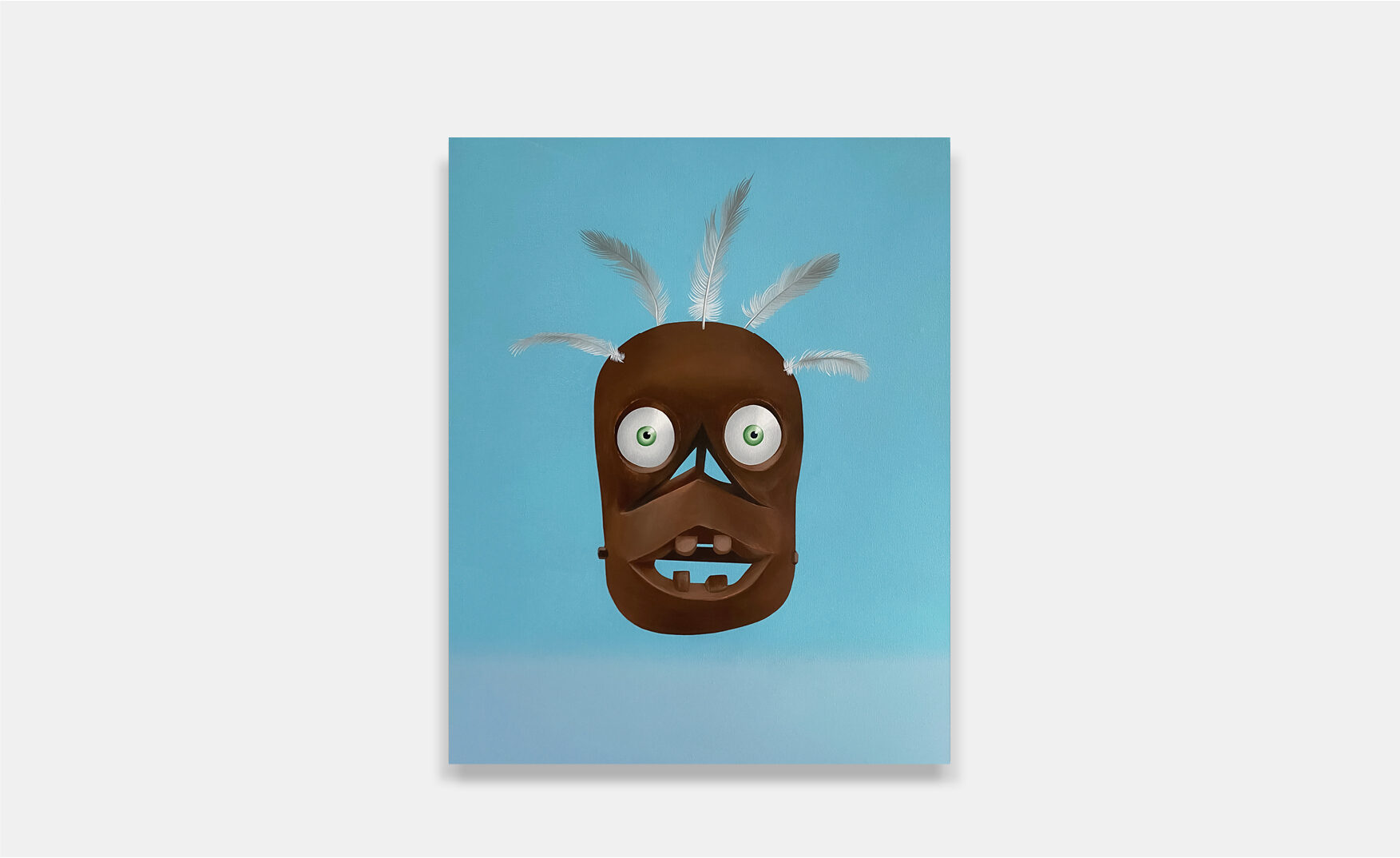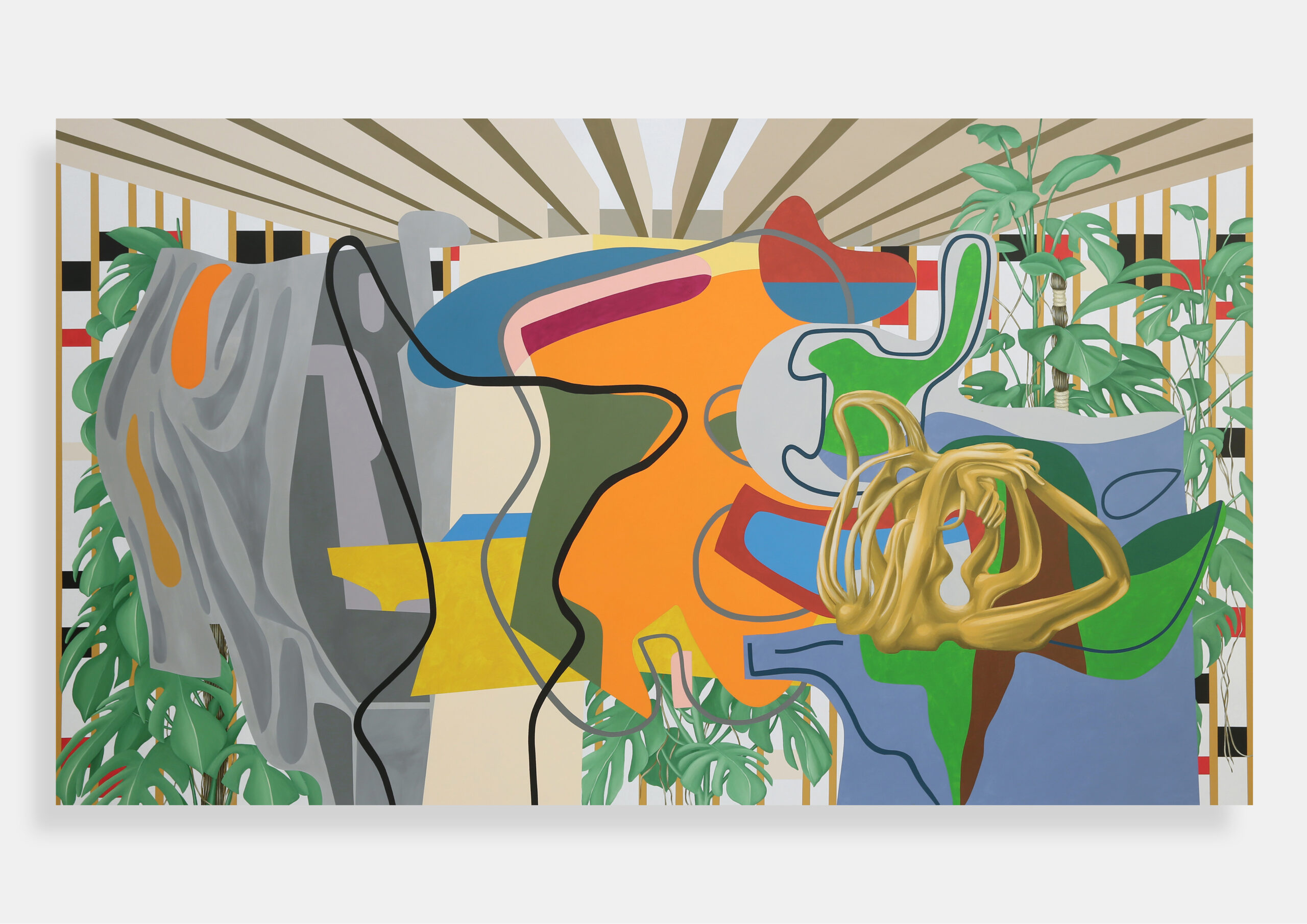Land of the future – The year Brazil became an outcast 2021 – Acrylic on canvas – 110 x 190 cm

In October 2020, the now former minister Ernesto Araújo said that if Brazil’s current foreign policy “makes us an international pariah, then let us be that pariah.”
Araújo’s speech exposed the country’s isolation on the international geopolitics, and also that this positioning has not been happening by accident, but as a voluntary project by Bolsonaro’s government.
The Brazilian national diplomacy, that has known moments of glory, is now marked by the pandemic’s conduction, by the antagonisms against China, the little concern with neighboring countries and also by its position as an environmental villain. Today, no nation of Brazil’s stature has such a bad reputation in the world.
In contrast, the Itamaraty Palace, where the Ministry of Foreign Affairs of Brazil is headquartered, is considered a masterpiece of architect Oscar Niemeyer. The painting The year Brazil became an outcast condenses architectural elements of the Palace, the garden by Burle Marx and works by Maria Martins and Athos Bulcão.
Land of the future
The book Brazil, Land of the future, published in 1941 by the Austrian author Stefan Zweig, is a travel guide. The work describes Brazil as an idyllic place with extraordinary civilizing potential.
Despite its sales success, the book was devious as the country was currently under a dictatorship. Nevertheless, Brazil, Land of the future became a national epithet. It was as a slogan widely explored by the government at the time. The new international aesthetics would conveniently match the government’s desire to promote the country’s progress and modernization.
A characteristic of the history of Brazilian culture in the 20th century is the appropriation of Modern avant-gardes by artists and the consequent consolidation of Modernist Brazilianness as one of the foundations of national identity.
With the series Land of the future, I aim to contrast the Modern project in Brazil – its promises of the future and its relationship with politics – with the present context.

